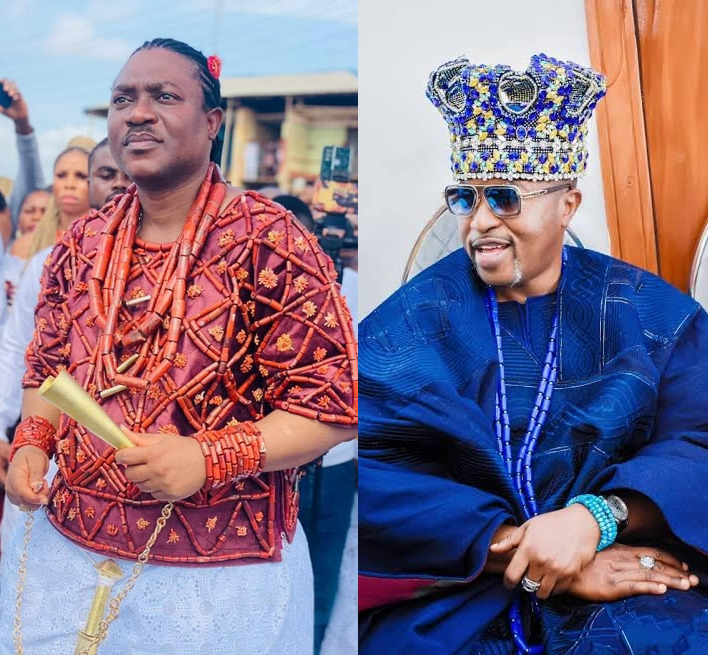By John Ogunsemore
The Olowo of Owo Kingdom in Ondo State, Oba Ajibade Gbadegesin Ogunoye III said any aspiring Yoruba monarch must be prepared to abide by the dictates of the stool.
He emphasised that those unwilling to uphold ancient traditions have no business becoming kings in Yorubaland.
Oba Gbadegesin, who is the Chairman of the Ondo State Council of Traditional Rulers, made this known at a Wednesday colloquium held in Akure in honour of the Deji of Akure, Oba Aladetoyinbo Ogunlade Aladelusi, who marked his 10th coronation anniversary.
Oba Gbadegesin’s stance runs contrary to the Oluwo of Iwo in Osun State, Oba Abulrosheed Akanbi’s position concerning Yoruba monarch’s observance of traditional rites.
In a Tuesday statement signed by his Media Adviser, Alli Ibraheem, the Iwo monarch had commended the burial of late Awujale of Ijebu Ode and Paramount Ruler of Ijebuland, Oba Sikiru Adetona according to Islamic rites.
Oba Akanbi expressed satisfaction with the burial rites adopted in honouring the late Awujale, stating that he was not subjected to mutilation or cannibalisation “as done by butchers.”
The monarch also commended the Governor of Ogun State, Dapo Abiodun, who ensured that soldiers, during the burial, prevented traditionalists from hijacking the Awujale’s burial, maintaining that the traditional ruler had indicated he should be buried according to Islamic rites.
Oba Akanbi said, “Any town willing that his king be butchered after death should appoint an herbalist, Osugbo and Ogboni as their king.”
He added, “The burial process to be adopted in burying Yoruba traditional rulers should be on the recommendation of the king before his passage or his family after his death.
“The seizure of the king’s corpse from his family by any secret group should be optional, depending on the wishes of his family.”
At Wednesday’s colloquium, a sociopolitical critic, Dr. Festus Adedayo, argued that Nigeria’s traditional institution has lost its mystique and potency due to modernisation and the failure of some kings to embody age-old customs.
Adedayo asserted that the diminishing sacredness of monarchs has hindered the institution’s impact on nation-building.
“The traditional institution must redeem itself if it wants to be taken seriously,” Adedayo said.
“Kings must uphold the myths and practices handed down from ancient times — their comportment, the sacred aura around their personalities, and even burial rites must reflect this heritage.”
Reacting sharply, the Olowo insisted that no one is forced to become an Oba, and that the role requires deep respect and adherence to customs, no matter how ancient.
“If you want to be an Oba, be ready to live by the traditions,” he said.
“You can’t wear the crown and reject the customs. Nobody is compelled to become a king. I knew what the role demanded before I ascended the throne, having lived in the palace for 25 years with my father. I have never found anything repugnant in our traditions. If you can’t embrace them, don’t accept the crown.”
The Olowo praised the Oyo State government for respecting tradition in the recent installation of the new Alaafin of Oyo, saying such examples must be upheld rather than dismissed.
He also challenged critics like Adedayo to name specific kings who have erred, instead of generalising the institution.


